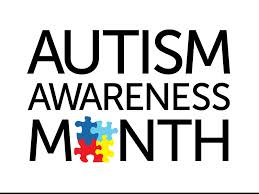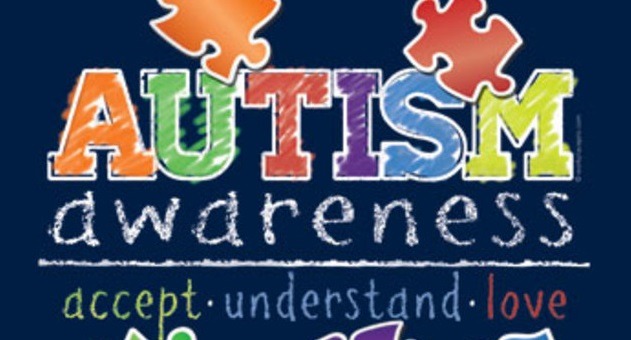 In just a couple of days, people all over the world will be commemorating Autism Awareness Month. A lot of buildings will be lightening up blue as a part of an initiative to bring global awareness about Autism.
In just a couple of days, people all over the world will be commemorating Autism Awareness Month. A lot of buildings will be lightening up blue as a part of an initiative to bring global awareness about Autism.
Every time I meet someone who finds out that I have three (3) children under the autism spectrum (I believe my family and I are probably the only ones in Trinidad and Tobago with three autistic children), the following question is asked: How do you do it? And my answer always remains the same: “I really do not know”.
What I do know is that you have no idea how strong you really are until you are placed in a situation where being strong is your only choice. Not for you, but for your children.
Even though I understand and applaud any campaign that helps to bring awareness about this condition, I think we should emphasized more the “Action” part.
Yes, we can light up in blue so many buildings in support of the initiative, and while that’s wonderful and commendable, what about an initiative that can help families with autistic children directly?
What about an initiative that can help bring awareness at the lack of local resources? What about an initiative that can create the first public school for children under the Autism Spectrum in Trinidad?
What about an initiative that can bring some sort of respite for the many parents who need a little time for themselves? What about an initiative that can bring specialists in autism on a yearly basis and they can evaluate/diagnose children who seems to have autistic tendencies and not merely coming to give conferences where parents most of the time must pay in order to participate?
So I’m sorry if I don’t get very excited about wearing a t-shirt that says “April is Autism Awareness Month” Or encouraging your business to light up blue because I’m too busy trying to get my boys some sort of needed therapy in a place where resources lack terribly and where everything is overpriced.
I’m sorry if I don’t take a picture during awareness month or participate in a walkathon year after year after year under the hot Caribbean sun or purchasing a t-shirt in support but I think my time and work is more valuable at home when I attempt to teach my oldest some social needed skills and try to understand his complex mind in a world that does not understand him and he doesn’t understand.
My youngest to read, talk, help him cope with his sensory related issues specially when we are outside and get him to do things that for most people is not a big deal such as eating using utensils and my middle…well, just trying to bring him back to me from his autism world.. A daily, difficult challenge where tiny steps forward are giant ones in his life and mine.
If you know anyone with a family member with autism, a neighbor, a co-worker, anyone…you can make a difference in their lives by reaching out, not in the form of a t-shirt…or a blue light but by doing things that could help them directly.
Most parents with children with autism are homebound, so dropping by without letting them know isn’t a good idea, and please don’t get upset when they cannot meet you or entertain you at home because the reality is that their lives are very, very, very different than yours. They are not trying to be anti-social; they are trying to cope with their reality. All they need is understanding.
A lot of children under the spectrum have also sensory-processing issues so certain places, people, smells, lights can affect them and their behavior so their activities are extremely planned and organized for their sake and their parent’s sake and I know for some, they are not fun to be around but that’s okay…They passed the stage of wanting to be socially acceptable (As a matter of fact, I think most parents of children under the autism spectrum passed that stage when their children starting having meltdowns in the middle of the street because they saw a fly, smelled something wrong, etc.).
All we want to do is help our children.
If you know anyone with children under the Autism spectrum you can help by doing the following:
1. Don’t judge/assume. So you see a child in the middle of the supermarket throwing a tantrum? Could it be just a spoiled child wanting his/her way? Yes. Could it be an autistic child having a sensory meltdown? Yes. Give them the benefit of the doubt, because regardless of who they are they need your help, not your judgment.
2. “Don’t you think you should…”. Trust me, you don’t know what is like. You might think you know what is like but you don’t (No offense). Parents of children under the spectrum research and try different methods on a daily basis and even though we know most of you have the best of intentions, the methods we use with our children are different than the ones you use with neuro-typical children so please don’t be offended if we do not follow your advice.
3. Write some encouraging words to a parent of an autistic child. It doesn’t have to be long or laborious. Just a simple, caring note can make their day. Whatever you write, never say things like “Oh, I feel so sorry for you… ”
4. If you have children, please invite an autistic child to play dates and birthdays. A lot of them live isolated lives because other children and their parents isolate them. They want and need friends just like yours and they know when they are not wanted.
Please teach your children about including those who are perceived as different because in the end, we are all different in our own way but make sure they understand that even though our children with autism need empathy, they do not need sympathy. If they get to know an autistic child, they will know how wonderful and intelligent they are! They just need extra patience and a little consideration.
5. Listen and be a friend. Sometimes, all we need to do as parents is to rant a little and share how we feel.
6. Help others understand that Autism is a neurological condition and our children are as smart as the rest, they just learn differently and they have trouble in social settings. Just think about an autistic person as a foreigner coming to a new land, trying to adapt to their new environment, learning a new language, culture, etc.
7. Please do not use the word “Retarded” or “special” (Sarcastically) when you are attempting to describe a situation, insult others or make fun of your friends. It doesn’t matter whether or not you mean it in that way but it is both hurtful and demeaning and an insult for children with special needs.
8. If you see me with my children, please talk to them! Do not ask me questions about them in front of them. You do not need to feel awkward; I can help you communicate with them if they are unable to reply..do not pretend they are not there or that they are deaf and you have to speak louder or that they cannot understand…please, don’t assume. Just try.
9. If you meet someone with autism, you just met ONE person with autism. The spectrum is huge and just because our children might not display the same behavior than the one you met, doesn’t mean they are not autistic so saying they do not “Look” Autistic, doesn’t help. Help by learning about autism and teaching others about it.
10. Share this blog post and let others know that Autism Awareness Month is a daily, 24/7 occurrence for a big group of dedicated parents all around the world who work, fight, cry and even beg to provide the therapy their children need in order to help them reach their full potential. In Trinidad specifically, fighting stigma, ignorance and lack of resources.
If you want to help and you mean it, just ask.
UPDATE: The Trinidad Guardian Newspaper featured this blog post in two separate articles on April 14th, 2015. You can check the following links to read it online: Source 8 and Source 3
PART 2: Source 3

What a heartfelt post and very very true. Thanks for introducing me to your blog!
I completely agree with you. I desperately want to educate persons about autism but what about what the children themselves need. What is the autism society doing? I refuse to go on another autism walk because the promoters do nothing to help promote autism. It is all rather depressing.
Love, love, love this! I support autism awareness efforts only because so many people don’t have the slightest idea what it means to have a child on the spectrum. But I have also asked myself the same thing many times. How does this help me get any therapy or resources that my child needs so desperately? I can only hope that by continuing to make more people aware, that eventually this will improve the facilities and resources locally.
Hi, I totally support your points raised in that ASTT post and also on your blog. Can we chat sometime? My name is Kala, I live in the UK – married to a Brit diplomat but I am Trini and helped to set up the only school in the Caribbean offering full time ABA based schooling – in Guyana for autistic kids. Drop me a line on…(Email removed).
Nicole, thank you so much for stopping by and leaving a comment. I appreciate it.
Solmer, faithful blog follower, I hear you loud and clear. We seem to be missing the point altogether about helping the CHILDREN and FAMILIES. Yes, education of course is vital but at the same time families and children suffer because very little is being done to help them.
Kala, thank you so much for your comment. I removed your full name and email address for security reasons but I will be emailing you.
I read your articles in the Guardian and I was very impressed with the great tips you provided for us who don’t know much about autism. I also agree with what you wrote about the lighting up blue initiative, I didn’t want to sound insensitive but when I saw the TATIL building blue I thought to myself: Why instead of spending so much money in blue lights, they don’t use that money to donate it?
I’m living abroad but read your articles online in the Guardian, excellent job. My wife and I have a 3 year old severely autistic son, he is attending a special needs school here in Britain and doing wonderfully. Your article about the way we go about bringing awareness made me think a lot. Thank you.